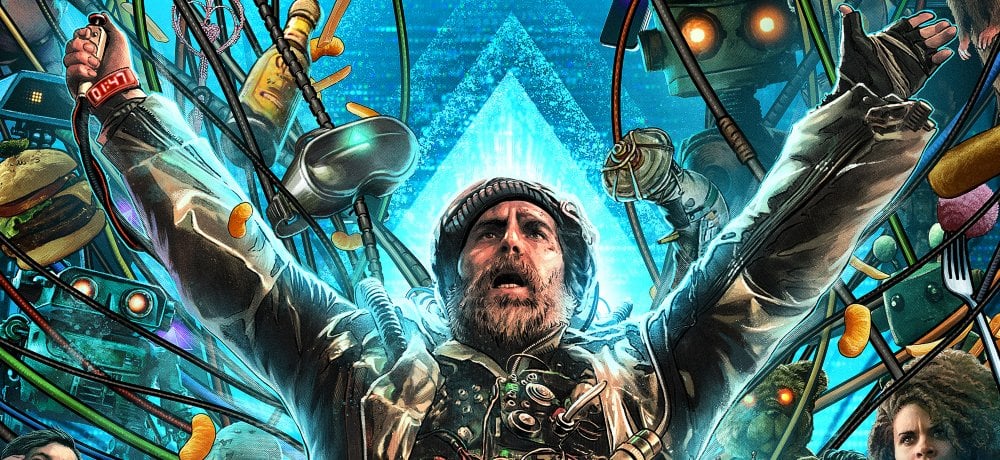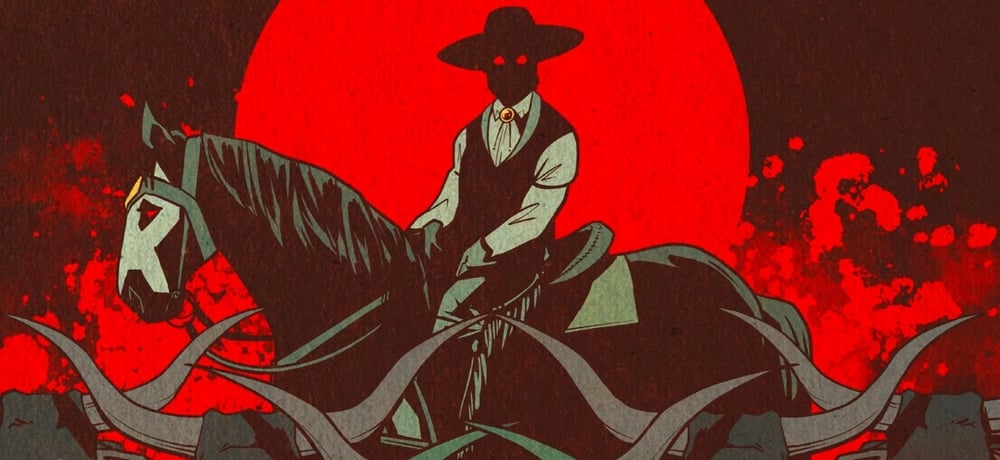





With democracy under attack and the climate crisis unsolved, there’s an ever-growing sense that humanity may be nearing its extinction. Where did it all go wrong? Were we to revisit the past 10, 50, or 100 years from now, would we know where to look for answers? Would we know what to do if we found them?
The hard-nosed soldiers in Tom Paton’s Stairs certainly don’t. Following a difficult operation during which they forswore their humanity for the sake of obeying orders, their debriefing takes an introspective turn when their nine-strong platoon is pursued up an unending staircase by the spectre of a civilian they killed in cold blood.
Before her execution, the prisoner gives the group some ominous, prescient advice: don’t go down. Those that do are swiftly chewed up. Those that don’t, climb, up and up until their boots fill with blood, frantically seeking a way to make amends for their actions.
Forced to pull the all-important trigger by leader Will Stanton, a bulky war-mad Colonel Kurtz-type played well by Shayne Ward, it is Samantha Schnitzler’s Kia Clarke who shoulders much of the movie’s emotions. Their supernatural assailant, who comes accompanied by wailing sirens and flashing crimson lights, may be a tad banal—a red-mouthed woman in white who cocks her head to suggest menace—but this isn’t about her. This isn’t a ghost story. It isn’t a revenge flick. Stairs isn’t about such trivial physical horrors. For Paton, the terror is out there in the field and deep in his characters’ heads.
During their ascent, the crew comes across literal gateways to the past that lead back to the beginning of their operation, giving them the chance to change the present. The team see themselves in combat and through their trial-and-error excursions must decide how best to prevent their past selves from killing the prophetic prisoner.
There is a wider story at work here. The combatants’ historical excavations reflect the destructive thought spirals brought about by PTSD and depression. It’s a theme echoed even in the color palette: the mission segments are marked by severe ultramarine hues that suggest the time travelers are literally living the blues. These are post-combat troops endlessly reliving moments in the field, thinking about things they could’ve, should’ve done differently. Should they stop climbing and fail to engage with their grief, they are consumed by grief’s blaring horns and gaping maw.
Practically speaking, the flick’s perpetual stairwell, shot in a run-of-the-mill London shopping center, could have been tedious, but smart editing and the outfit’s frequent forays help maintain the pace, even if the film feels a touch too long at about 100 minutes. As the expendable grunts fall to the ever-encroaching phantom or to each other, fewer and fewer are left to try and find a way out of their never-ending nightmare. The ambiguous conclusion, however, suggests that there is no end, there are no answers, and there is always more anguish to unfold.
Between the time travel splatter story To Your Last Death, free-will thriller Volition, and Paton’s trauma treadmill, FrightFest 2019 was awash with science-inflected flicks that use fate, foresight, and temporal loops in their central premises. At a turbulent time when many people are desperately searching for ways to repair past mistakes on our planet, it’s no surprise that stories such as these are striking chords with creators.
Movie Score: 3.5/5